Hello and welcome back. Today I want to talk about the complexity creep of Magic, but specifically address the need for outside information to play the game in paper. This affects all formats and has since almost the beginning of the game itself. It’s why we have judges after all (shout out to our judges!).
However, while our esteemed judges try their best and often succeed at their duties during tournaments and even casual play, they have run into issues where looking at information outside of their immediate knowledge is required. That’s absolutely fine as I don’t think any reasonable player wants a ruling on a gut feeling over knowledge if something like a tournament is on the line.
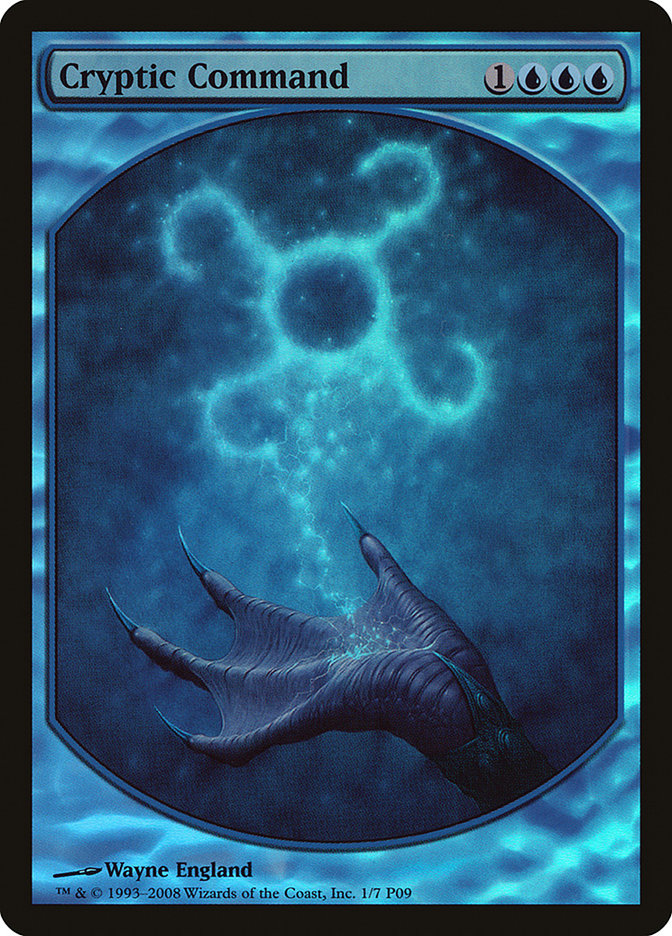
The game has become a much more complex beast since the earliest days and that means with or without a judge, players are having to look up anything from a textless card just to confirm its wording to a new and complex or uncommon interaction. This is a feature of Magic and not a bug, and actually can make the game more interesting and therefore more fun. It can also create frustrating situations, especially in an eternal format like Commander where players may need help at the time to understand those cards or interactions.
Without a judge, most of us have ready access to information via our phones, or know someone who can look up information for us. With this knowledge base at our fingertips we can play the game without too many hiccups, but will the game become so complex that needing a smart phone is required to play it?
MECHANICS CREEP
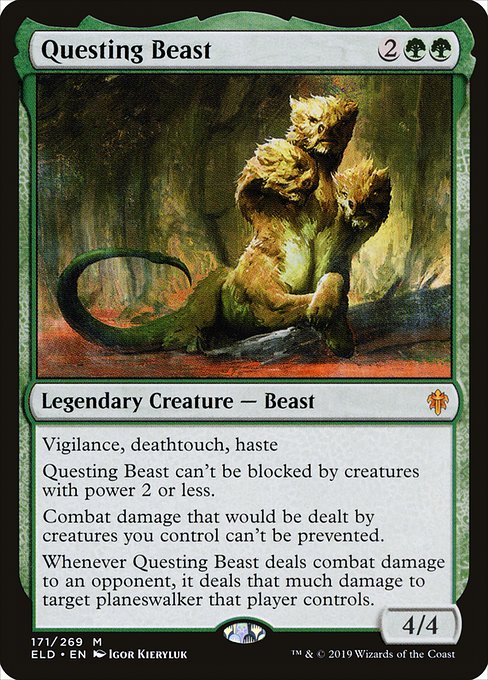
The game has become much more complex over time. Questing Beast and other cards from the set Throne of Eldraine have become a noticeable point in history where Magic cards got more complex and wordy. As another example, there hasn’t been a “vanilla” creature (a creature with only flavor text and/or base stats) printed in any of the recent sets.
As more cards can do more things per piece of cardboard, knowing what a card does at a glance is becoming more complicated. With the mental load being so large in such an environment it could cripple the game play with stagnation caused by having to check every card’s text. Luckily, most of the time you’re only playing in an either well defined or settled meta if you’re in a 60 card format, or an eternal format with a decently defined one.
Commander is a different beast though and it shares similar problems with other eternal formats. We have the opportunity to be exposed to more cards than any other format because our metas are more diverse simply because of how Commander is played, regulated, and the card pool available. That is to say by and large it’s regulated by the players involved. A proud achievement to be sure, but one that brings along its own complications and adds complexity.
ART SEEP
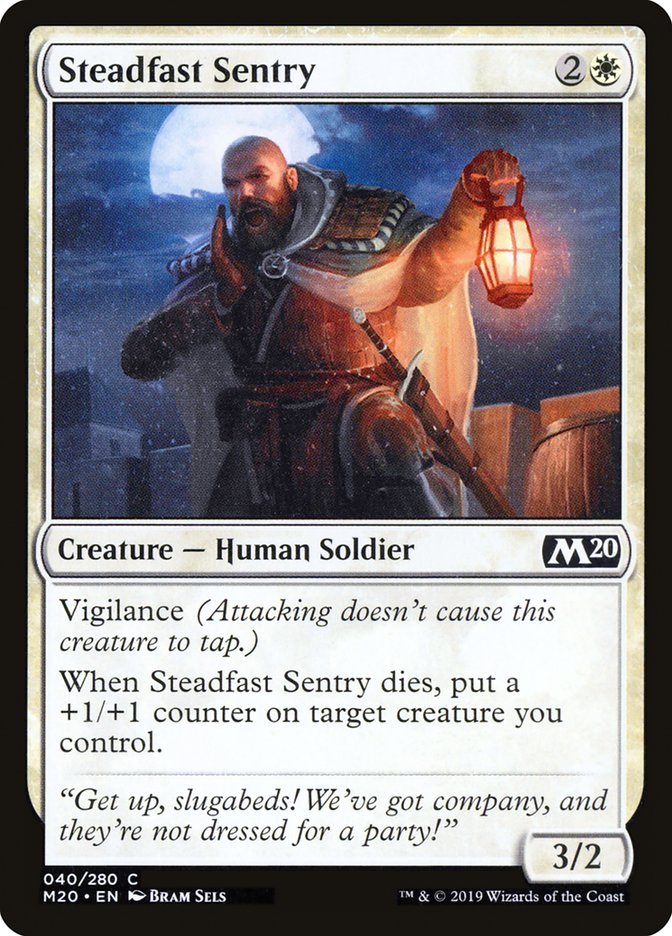
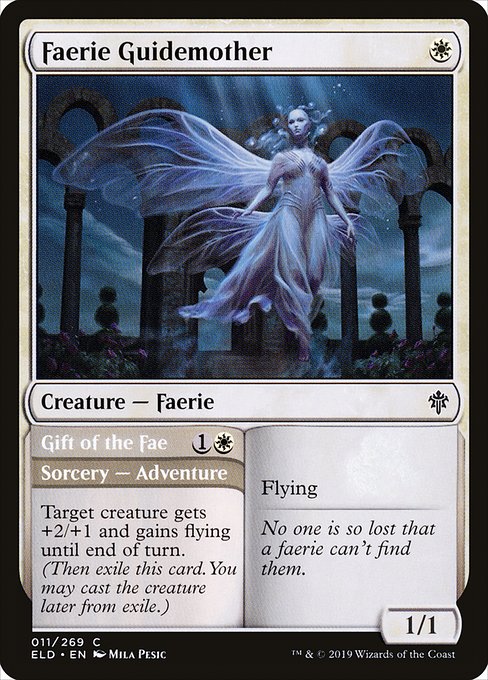
Art.
I would argue that while the game system of Magic the Gathering would function fine without it, the art is absolutely a foundational pillar to what the game is and is even its soul (alongside the lore). With art, you can communicate so many things about a being, a place, a whole situation that mechanics alone can’t do most of the time. The sagging shoulders of a warrior or the glint in the eyes of a motherlike figure can really speak to the atmosphere and context of a piece.
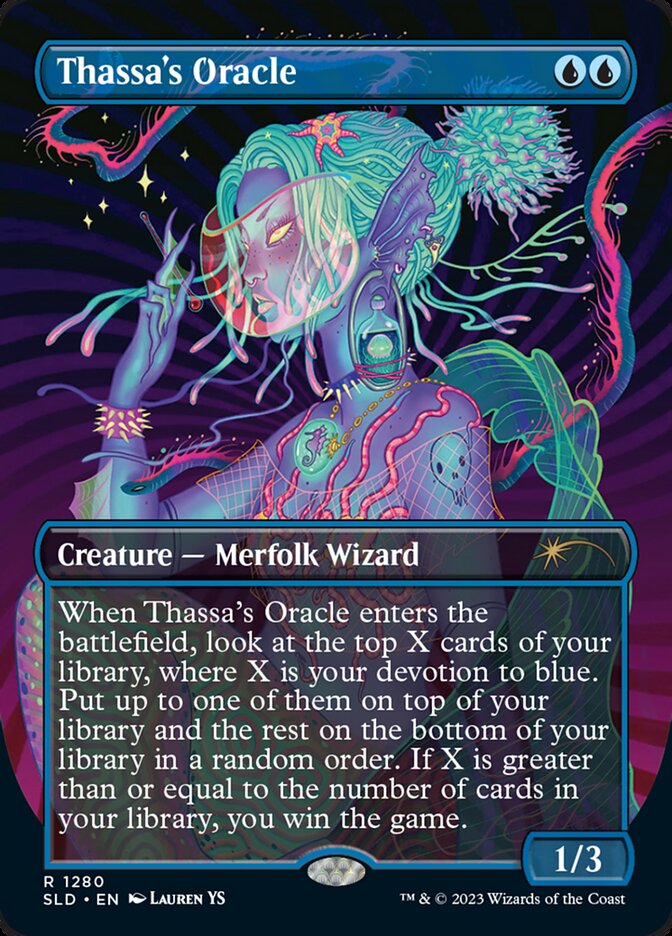
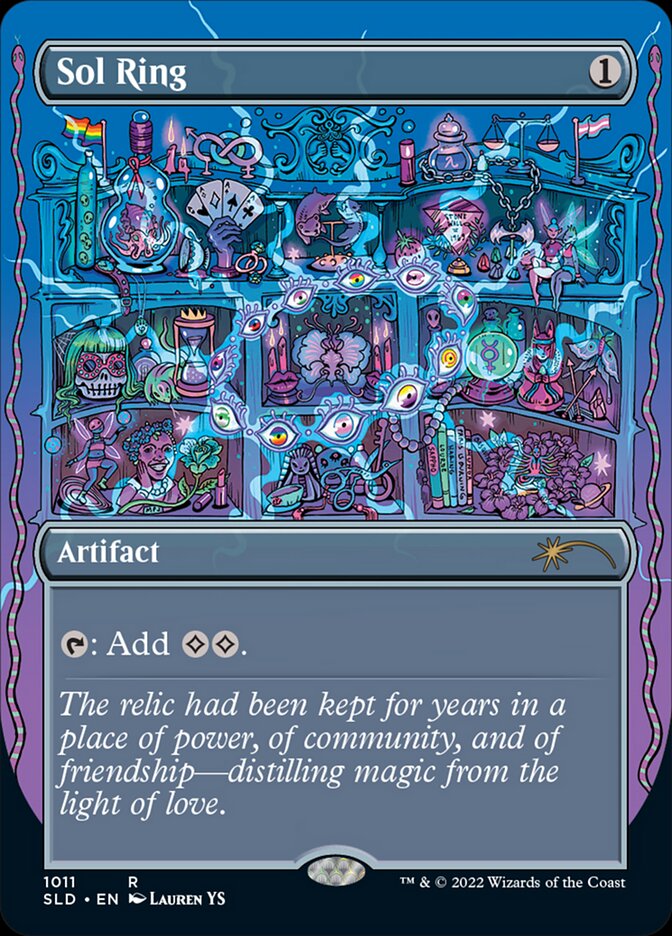
Art is not an objective thing, it’s subjective. While art done to inspire and create conversation is a good thing, Magic players use the art on a card to get information, often depending on the art of a card to shorthand what the card does or what they’re looking for. This gets more complicated as art changes into things that aren’t easily recognized. Granted, this varies by card, but a Secret Lair Thassa’s Oracle might be more recognizable at a glance than something like Secret Lair Sol Ring due to the knowledge of the art or number of printings. Customizing a deck beyond this can create even more information overload, both for the pilot and even more so for opponents.
LOOKING DEEP
Both mechanics and art divergence combine to often add a richness and unique flair to an experience in a deck’s creation. Commander is partly about self expression after all and people might want to add a specific version of a card or a specific art.
These effects combine sometimes to make playing the game more difficult than need be as well. In the instances where we aren’t sure what a card does, how it interacts or just don’t recognize that art, we can turn to our phones and the internet. This can help players learn about new cards, their mechanics and their art.
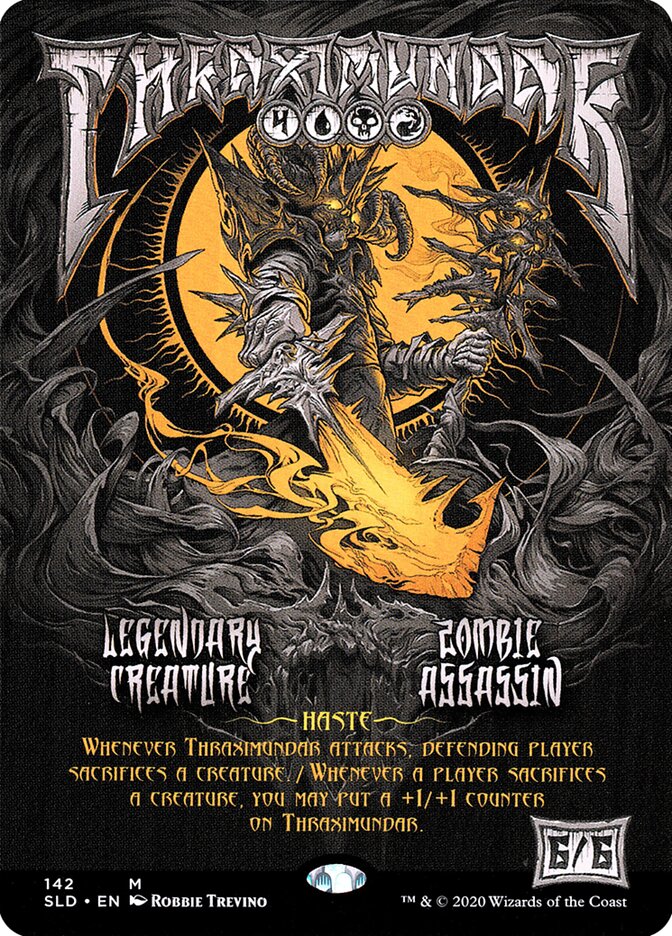

It seems a bit odd to need to do that for a card game. Unlike online clients like MTGO or Arena where different things get remembered for you most of the time, paper Magic is a bit less forgiving. As I said before a lot of players probably glance at the art and if recognized information is immediately communicated about what the card does if the player is already familiar with it. If they aren’t though, even if the card is explained to be Thraximundar or Rankle Master of Pranks secret lair cards, there may or may not be text to text.
Information is how we decide on how to interact with the game state, but when things become so loaded with it, will this format and game we love always need the crutch of an outside source of information to even play the game? The simple answer is yes, as for most of the game’s history we at very least needed the makers of the game to help explain the cards and rules and judges or other figures to help mold and interpret the environment the cards were used in.
Will we always need our smart phones or computers to help us? I hope not. If the game ever gets complex to the point we constantly need an outside aid to even play middling decks I think we have a big problem. Luckily players’ ability to learn and adapt combined with a tight language use on cards and a general adherence to art style for most cards keeps this in check.
For now.
PILES AND HEAPS

Frantic Search - Mitchell Malloy
I don’t know about any of you fellow planeswalkers, but I find a mess of tidy piles better for my organization and deck building. Largely I can sort through those piles at will just by looking at the art alone, though it’s gotten harder with the set release schedule. Now I have to sit and reread a lot of newer cards to remember what they do. Luckily, I haven’t needed my phone or computer to do that! It would take forever.
As far as complexity though, let me know what you think. Do you have to constantly look something up related to your own games and interactions or is it every once in a while?
Until next time, avoid frying your cardboard circuits.












